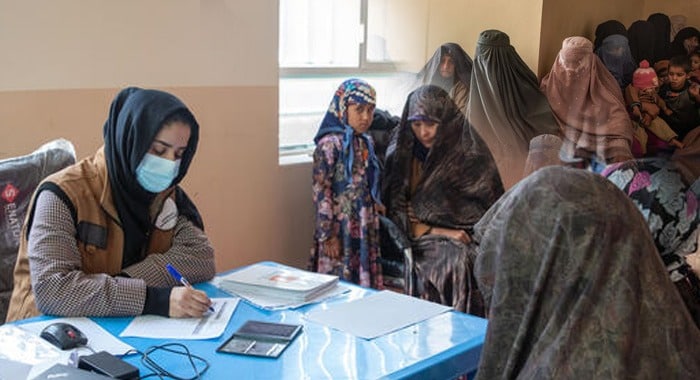The United Nations Office for the Coordination of Humanitarian Affairs (OCHA) has raised alarm over increasing interference by Taliban authorities in aid operations across Afghanistan, particularly restrictions targeting female aid workers and beneficiaries.
In its April humanitarian access report, released on Sunday, OCHA documented 60 access-related incidents in the central, southern, and western regions of the country — an 11% rise from March. Of these, nearly one-fifth (18%) were linked specifically to gender-based restrictions.
The reported impediments included interference in project planning, diversion of aid, delays in securing documentation, disruption of recruitment processes, and explicit prohibitions on women’s participation in aid delivery. As a result, 35 humanitarian activities were temporarily suspended during the reporting period.
OCHA attributed 73% of the 44 documented access constraints directly to the Taliban. The report also noted an uptick in hostility against aid workers, including seven arrests, 29 threats or verbal assaults, and four movement bans. Notably, restrictions on women’s roles in humanitarian operations rose by 38% compared to the previous month.
In a further challenge to operational neutrality, the Taliban have also demanded access to confidential beneficiary data, including names and lists, raising concerns over privacy and impartiality.
OCHA continues to issue monthly assessments of the operational climate in Afghanistan, emphasising the urgent need for unimpeded humanitarian access to ensure life-saving assistance reaches the country’s most vulnerable communities.





